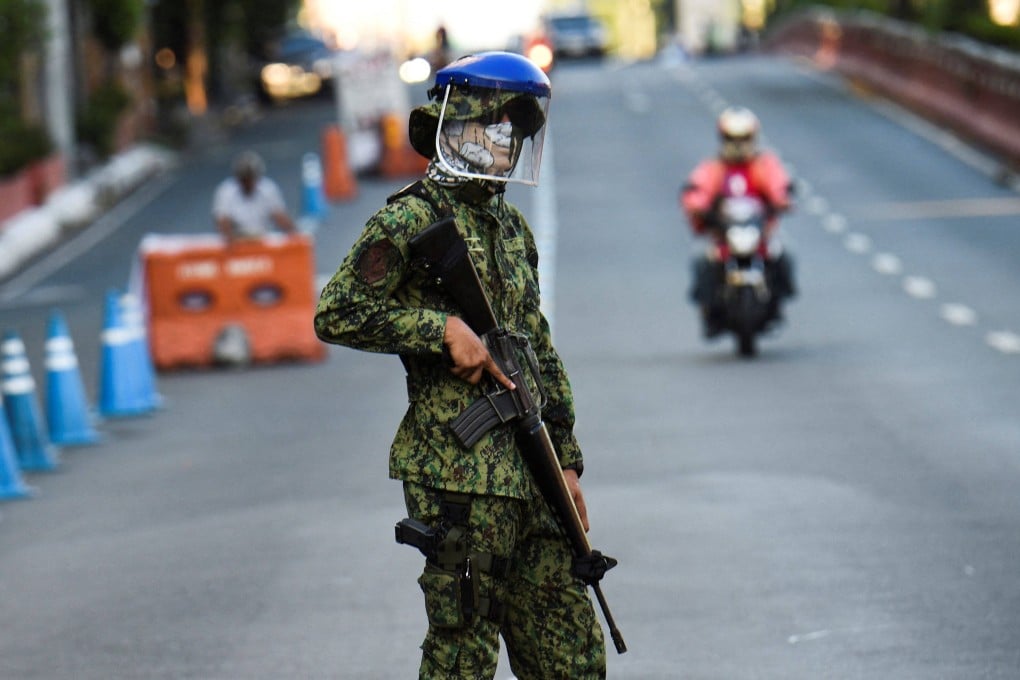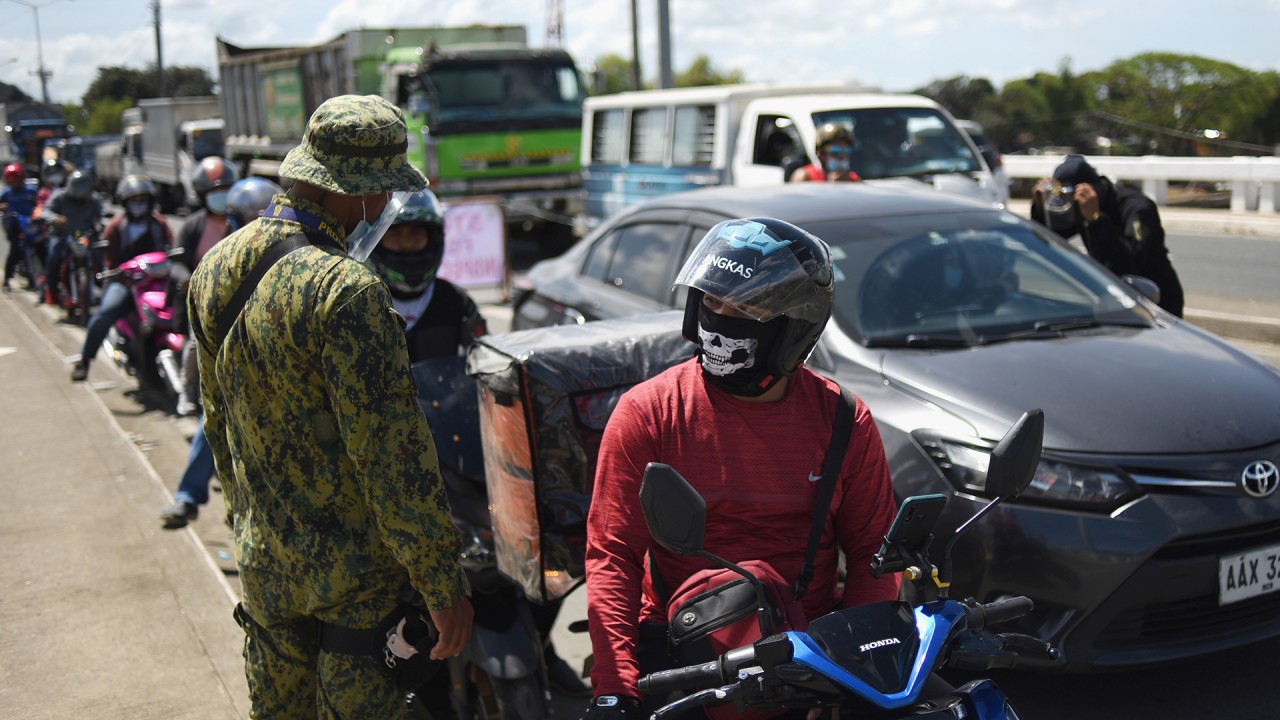Philippines’ renewed coronavirus lockdown in Manila likely to sharpen criticism of government’s response to pandemic
- The total number of active infections has more than tripled since February 26, and more than half the active infections have been recorded in the capital region
- The government for its part has sought to blame ‘pandemic fatigue’ and emerging variants of the disease, including one from Hong Kong

The renewed restrictions are likely to sharpen criticism of the government’s response to the pandemic. The government for its part has sought to blame “pandemic fatigue” and emerging variants of the disease, including one from Hong Kong.
The enhanced community quarantine will last seven days from Monday until Easter Sunday, presidential spokesman Harry Roque said, citing the recommendation of the country’s coronavirus task force, which has been widely blamed for mismanaging the pandemic response.
An “intensified house-to-house search for those who have symptoms” will be conducted, Roque said. Curfews will be reimposed from 6pm until 5am in the National Capital Region (NCR) and the neighbouring provinces of Bulacan, Cavite, Laguna and Rizal. The country’s major institutions, such as Congress, the judiciary, the Philippine National Police, the armed forces and the Catholic Church, previously announced their own lockdowns.
The total number of active infections has more than tripled since February 26, and more than half of active infections have been recorded in the NCR. It is the worst spike in the Philippines since the strict lockdown was imposed on Metropolitan Manila and the same four provinces on March 15 last year.
Earlier this year, the worst of the pandemic appeared to be behind the Philippines. On January 26, daily infections had dropped to 908, leading to eased restrictions on gyms, mall-shopping, cinemas, indoor dining and tourism.
A week before the March 15 anniversary of the lockdown, which health secretary Francisco Duque called “the longest among the countries in the world”, the Duterte administration publicly congratulated itself.

“We were excellent,” presidential spokesman Harry Roque said on March 8. “We controlled the spread of the disease compared to richer countries that have modern hospitals.”
Aaditya Mattoo, the World Bank chief economist for East Asia and Pacific, was less impressed by the government’s pandemic response.
